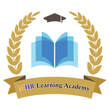|
Mr. Maxi F Fernandes is a distinguished and highly accomplished HR leader with over 33 years of exceptional experience. He currently serves as the Vice President HR at Arjas Steel Private Limited. Under his strategic leadership, the company has experienced remarkable growth and has immensely benefited from his visionary guidance. Mr. Fernandes possesses an unparalleled ability to handle talent, generating substantial value and profit for the organization. His expertise lies in optimizing business operations and driving continual improvement, showcasing his strategic thinking and unwavering commitment to delivering exceptional results.
With a Fellowship in HRM Strategy & Organizational Development, a Post Graduate Diploma in Human Resource & Industrial Relations, Masters in Commerce, and certification as an Executive Coach, Mr. Fernandes has consistently demonstrated his expertise by formulating and implementing highly effective HR policies, systems, and practices. His strategic acumen has played a pivotal role in negotiating and successfully signing ten long-term Union Settlements and various other benefit agreements with the Union, all achieved without any loss of working days. His leadership prowess was instrumental in the seamless transition of Nexteer Automotive from Delphi Automotive, setting up the Nexteer India software centre streamlined HR operations.
Under Mr. Fernandes' visionary leadership, Arjas achieved the prestigious "Great Place to Work" certification, a testament to his unwavering commitment to creating an employee-centric workplace culture. By implementing policies that prioritize employee well-being and fostering a culture of trust and collaboration, Mr. Fernandes has established Arjas as an industry leader that sets the standard for excellence.
Recognized for his outstanding contributions, Mr. Fernandes has received numerous accolades and honors. At the esteemed Nexteer Global Leadership Conference, he was awarded the “Best Strategy Award”, lauded for his visionary approach to shaping the organization's future. 1. Your entry into the HR profession was accidental. Would you explain how your HR career started? After completing my Bachelor of Commerce degree, I came to Bangalore in search of a career, like many other job seekers. I started my professional journey as an accountant with a startup company. A year into my tenure, our Factory Manager resigned, and the Directors asked me to oversee the operation until a replacement was found. However, this temporary arrangement lasted for a year, during which I took charge of the plant in Tumkur, despite being the youngest member of the team. Although managing the plant was a challenge, I saw it as an opportunity to learn and collaborate with my colleagues. During this time, I successfully prevented the formation of a workers' union and engaged the labor contract. As I implemented employee engagement initiatives and built a strong team, I realized my passion for people management and HR. This realization prompted me to pursue HR-related education, which turned out to be a turning point in my career. Through this experience, I was able to pave the path for my profession in HR, and I have been thriving in this field ever since. 2. You said you worked in Finance and were in charge of a manufacturing plant early in your career before you started your career in HR. Why did the company management choose you as a plant-in-charge? In fact, I also had this question in my mind when my directors asked me to take charge of the plant. Though I was the youngest among all the employees at the plant, the profile they were looking for in the position was a person who is sincere, energetic, positive, with the maturity to lead the team. To add to my background, I was an NCC cadet during my college days. This experience helped me develop a strong sense of discipline and leadership qualities, which proved to be beneficial in my professional life. During my time overseeing the plant in Tumkur, I was able to utilize these skills to build and lead a successful team. The NCC experience also taught me the importance of planning, people management, teamwork, result orientation, discipline, and collaboration, which have been essential in my career growth. 3. What factors influenced Mr. Maxi as a person and your career? My passion was to serve in the Indian Army, and I came to Bangalore to write Combined Defence Services (CDS) exam. I was a Senior Under Officer in the National Cadet Corps (NCC) and was part of NCC from 8th Std till my final Degree. During my college days, I was actively involved in sports – I was the volleyball team captain of my college team, represented the church and a club in volleyball, won a cycling race, and went on a cycling expedition to Goa from Mangalore and back. I held positions like College Student Union General Secretary, Treasurer for the AICUF (All India Catholic University Federation), Catholic Youth Movement Treasurer, and College Library Association President. I was also the Youth Congress Joint Secretary for the Kapu Constituency. This exposure influenced me a lot, honing my leadership skills. 4. You are instrumental in signing more than 10 union settlements. Which are the unions and leaders you worked with while signing these settlements? The unions that I signed the settlements or dealt with had the leaders elected internally. Some of the external union leaders that I worked with for negotiation include AITUC union leader H Mahadevan – National Working President and other leaders at state and district levels.
5. As a student, you joined NCC during school days. This has had a lot of Influence on your life and career. How did NCC influence you? How many camps did you attend?
Joining the National Cadet Corps (NCC) during my school days proved to be a transformative experience that significantly impacted both my life and career. The primary objective of NCC is to imbibe officer-like qualities in young students and inspire them to join the armed forces. During my time in NCC, I attended 14 camps, including the Annual Training Camps (ATC) and Army attachment camp at the Maratha Light Infantry Regiment Centre in Belgaum, which lasted for 21 days. I also participated in the Republic Day camp in Delhi, where I represented the Karnataka & Goa Contingent and had the honor of representing NCC at a national level in the Rajpath March fast parade from Rashtrapati Bhavan to India Gate. Additionally, I was a sharpshooter and won gold medals in Shooting and bronze medals in Drill. Managing the team of cadets during camps provided me with exposure to leadership, people management, and discipline, which were invaluable lessons. NCC training instilled in me the importance of Discipline, Leadership, and Teamwork, nurturing a strong sense of responsibility towards myself and others. The physical and mental challenges I faced during NCC training strengthened my physical fitness and mental endurance, becoming invaluable assets that have served me well in both my personal and professional life. NCC participation exposed me to diverse experiences and perspectives, broadening my worldview and helping me better appreciate the diversity around me. The skills and values I learned through NCC have had a profound and lasting impact on my career as an HR professional. Managing teams of cadets during camps exposed me to invaluable lessons in leadership, people management, and discipline. Looking back, I can confidently say that joining NCC was a turning point in my life that contributed significantly to my personal and professional development. The leadership and teamwork skills I gained through NCC have been particularly valuable in managing teams and promoting a positive work culture. The discipline and sense of responsibility instilled in me by NCC training have helped me navigate complex situations with confidence and composure. In conclusion, joining NCC during my school days was one of the best decisions I have ever made. The skills and values I gained from this experience continue to shape my approach to personal and professional challenges, and I remain forever grateful for the opportunities and lessons NCC has provided me. 6. You were very keen to serve in the Indian Army because of NCC. But you did not get through it. Why did you want to join the Indian Army? I always had a passion to serve the nation. In line with my interest, NCC developed an interest in serving the country through the armed forces due to the exposure and training provided by NCC. I'm inspired by the values of discipline, leadership, and service instilled by NCC, and I was eager to see a career in the armed forces as an opportunity to continue serving the country. 7. One of your assignments was also handling the company's legal function. What are your key takeaways of handling the legal team of a company, and how has this helped in HR? During my time at Crompton Greaves, I had the opportunity to handle the legal function for the company. Initially, I handled labor cases for the division, and eventually, my responsibilities expanded to cover all legal cases in the southern region. To excel in this role, I took a deep dive into the cases and approached the parties involved with an open mind to find solutions that could lead to amicable settlements. My approach proved to be successful in many cases, where we were able to close many legal matters outside of the court system, saving the company significant amounts of money. Through this experience, I learned that conflicts can be resolved by sitting across the table with a win-win approach and an open mind to discuss and find solutions. The skills I developed while handling the legal function have been invaluable in my HR career. As an HR professional, I understand the importance of addressing conflicts and managing disputes effectively. My experience in handling legal cases has helped me to develop a balanced approach towards conflict resolution and equipped me with the skills to manage difficult conversations effectively. 8. Tell us about one complex legal issue you worked on. I recall a particularly challenging legal case that had been ongoing for nearly a decade, with the respondent proving elusive to track down. Despite having some basic contact information, I had to adopt a more investigative approach, utilizing the BSNL website to search for further details and then trace the address and visiting available office addresses to try and locate them. Ultimately, my persistence paid off as I was able to successfully make contact and negotiate a settlement, finally bringing closure to the case after such a prolonged period of time. 9. What are some strategies that can help young IR professionals achieve the success they want in their careers? Understanding the role is important for young IR professionals to have a clear understanding of their roles and responsibilities in the organization. They should familiarize themselves with the labor laws, company policies, and industrial relations practices. Building relationships: Developing positive relationships with the management, workers, and union representatives is crucial for young IR professionals. They should focus on building trust and credibility with all stakeholders, which will help them in achieving their goals. Effective communication: Effective communication skills are essential for IR professionals. They should be able to communicate clearly, listen actively, be logical, and negotiate effectively to resolve conflicts and reach mutually beneficial solutions. Continuous learning: The industrial relations landscape is constantly evolving, and it is essential for young IR professionals to keep themselves updated with the latest developments, which can be achieved by attending training programs, seminars, conferences, and networking with industry experts to enhance their knowledge and skills. Ethical conduct: IR professionals should uphold high ethical standards in their work. They should act with integrity, avoid conflicts of interest, and maintain confidentiality when dealing with sensitive information. 10. What are some of your plans in the HR profession? Each HR professional is an institute by themselves. Specifically, the knowledge of Human Resource management and Industrial Relations cannot be put into practice based on the theory that is learned in college; every situation is different, and every occasion is unique. As an HR professional, I believe that one must continuously strive to learn and grow in their field. Theoretical knowledge gained in college must be supplemented with practical experience and exposure to different situations. Each situation is unique, and the approach and decision-making process must be tailored accordingly. My plan in the HR profession is to continue learning and staying up to date with the latest developments and trends in the industry. I also aim to share my knowledge and experience with young professionals to help them navigate challenges and achieve their career goals. As an institute in myself, I strive to be a role model and mentor for the next generation of HR professionals, providing guidance and support to help them succeed. That will also be a great opportunity for me to learn from young minds.
30,000 HR PROFESSIONALS ARE CONNECTED THROUGH OUR NIRATHANKA HR GROUPS. YOU CAN ALSO JOIN AND PARTICIPATE IN OUR GROUP DISCUSSIONS
0 Comments
Leave a Reply. |
Categories
All
Archives
October 2023
Leaders Talk30,000 HR PROFESSIONALS ARE CONNECTED THROUGH OUR NIRATHANKA HR GROUPS.
YOU CAN ALSO JOIN AND PARTICIPATE IN OUR GROUP DISCUSSIONS. |
||||||||
site map
SitePUBLICATIONSJob |
HR SERVICESOTHER SERVICESTraining |
POSHNGO & CSROur Other Website:subscribe |
YOU CAN ALSO JOIN AND PARTICIPATE IN OUR GROUP DISCUSSIONS.

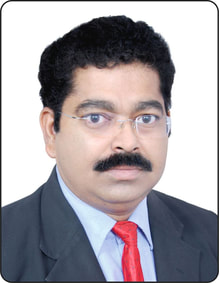
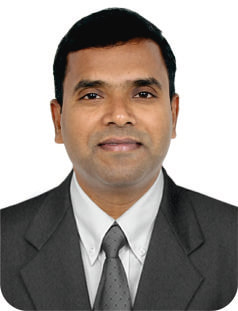
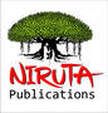




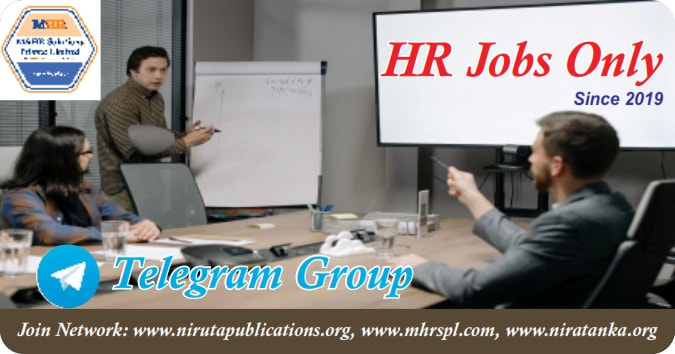

 RSS Feed
RSS Feed



